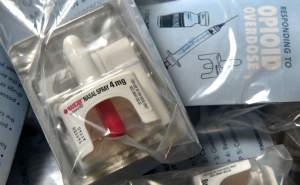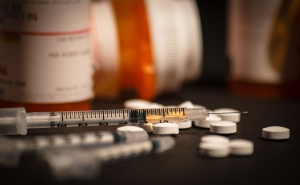The global health burden of substandard and falsified (SF) drugs is alarming and rapidly growing, especially with the high number of online pharmacies, currently estimated at around - 35,000 of which 95% are unlicensed. This issue affects nearly all areas, particularly oncology, mental health, chronic diseases, HIV, infectious diseases, and weight management. While the issue of substandard and falsified drugs is thought to be a problem of lower-and middle-income countries, a recent survey found that in the US more than 38% of Americans have been directly or indirectly exposed to events in which someone had received a substandard or falsified prescription medication from an online pharmacy. The current reports are concerning, and they require urgent public health attention.
For example:
- In oncology, SF drugs contribute to treatment failures, increasing mortality, with estimates indicating that 10-30% of cancer drugs in low- and middle-income countries are substandard or falsified.
- In Reproductive, Maternal, Newborn, and Child Health (RMNCH), in some countries more than 70% of oxytocin on the market is substandard or falsified contributing high maternal and child mortality.
- Chronic disease medications, including antihypertensives and diabetes drugs, face similar threats, compromising the health of over 300 million patients globally.
- In the US, an unauthorized network of drug distributors and suppliers sold over $250 million worth of counterfeit versions of HIV treatments, endangering patients and worsening the crisis. Globally, 19% of HIV drugs in some African regions have been found to be substandard, exacerbating drug resistance and disease spread.
- Infectious diseases like malaria are severely impacted, with over 72,000–267,000 deaths annually in sub-Saharan Africa linked to falsified antimalarials.
- The rise of online pharmacies, has further exacerbated the problem, facilitating access to these dangerous products globally, with an estimated 50-90% of medicines sold online being fake or substandard.
- In the U.S., counterfeit drugs containing fentanyl have fueled the opioid crisis, having caused more than 100,000 deaths in 2022, contributing to over 80% of opioid overdose deaths.
This symposium will feature insightful and engaging research and panel discussions that will be led by global experts in the field. These discussions will specifically address the global burden of SF drugs, public health responses to SF drugs, intervention strategies for consumers and patients, intervention strategies for pharmacy services, intervention strategies for health care providers, and intervention strategies input from policy advisors.
The event will be in person and is free to attend, but registration is limited to a maximum of 200 participants. Additional details about the symposium and the reports from the 2023 symposium can be found on the BESAFE website.
Registration
Register Here






